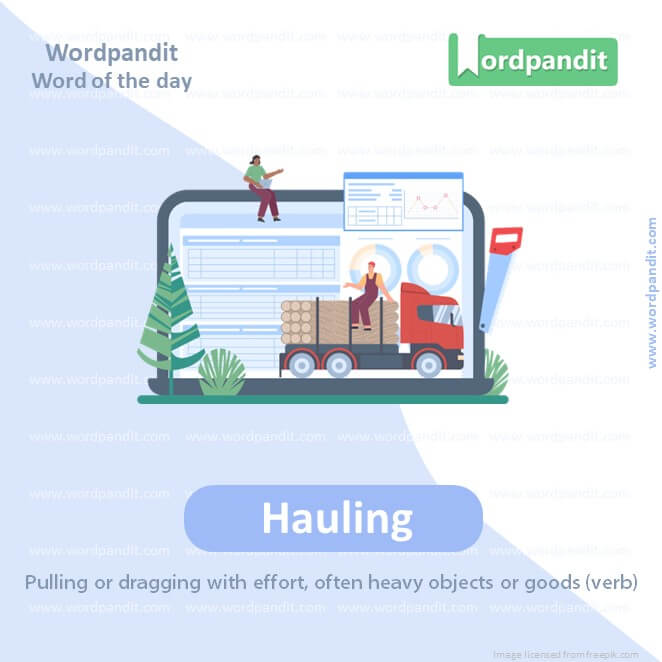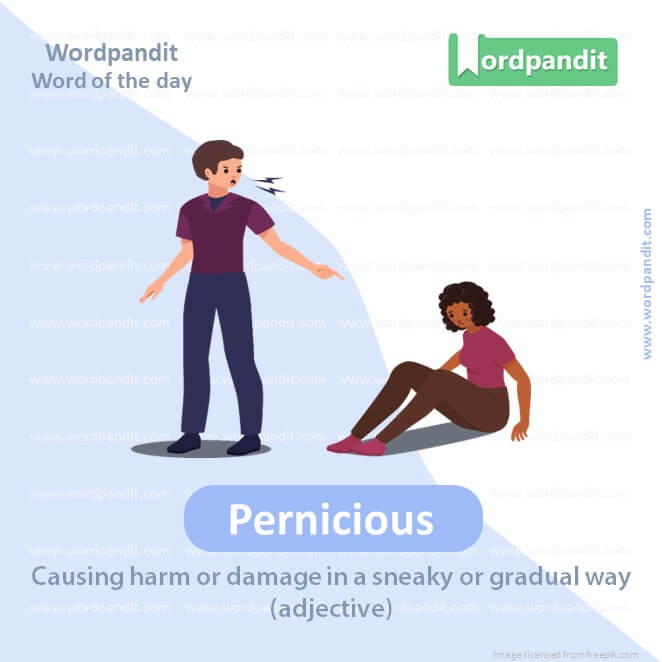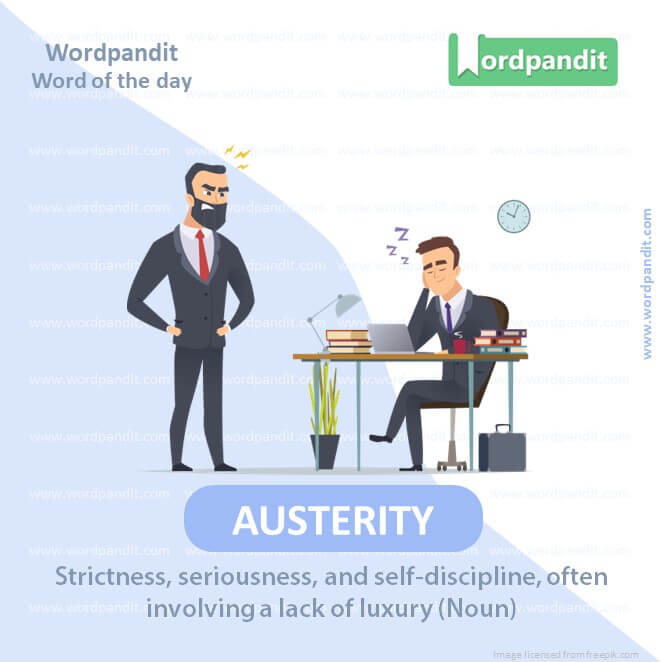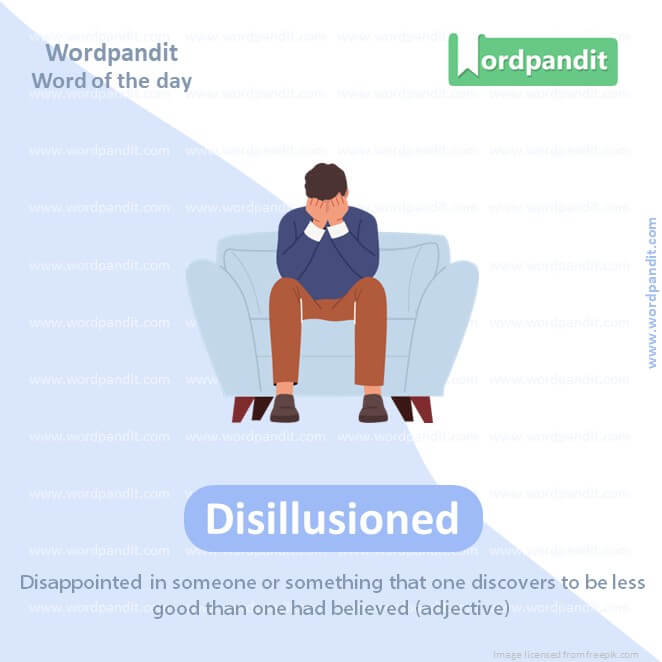Daily Vocabulary Words: List of Daily Used Words in Leading International Newspapers
Hi there. Welcome to this special section @ Wordpandit.
Our endeavour here is very simple: to highlight important daily vocabulary words, which you would come across in leading newspapers in the country. We have included the following newspapers in our selection:
• The New York Times
• The Washington Post
• Scientific American
• BBC
• The Guardian
• Psychology Today
• Wall Street Journal
• The Economist
We are putting in extensive work for developing your vocabulary. All you have got to do is be regular with this section and check out this post on a daily basis. This is your repository of words that are commonly used and essentially, we are posting a list of daily used words. Hence, this has significant practical application as it teaches you words that are used commonly in leading publications mentioned above.
Visit the website daily to learn words from leading international newspapers.

WORD-1: Renowned
CONTEXT: Not by chance were the supposedly shock victories of Brexit and Donald Trump named in a renowned essay by the LSE professor Andrés Rodríguez-Pose as “the revenge of the places that don’t matter”.
SOURCE: Guardian
EXPLANATORY PARAGRAPH: When someone is very famous and well-known for something they did, like a singer with a beautiful voice or a scientist who made important discoveries, we say they are “renowned.” It means they are highly respected and admired by many people.
MEANING: Widely acclaimed and respected for achievements or qualities (adjective).
PRONUNCIATION: ri-NOWND
SYNONYMS: famous, celebrated, esteemed, illustrious, distinguished
USAGE EXAMPLES:
1. The artist is renowned for his stunning paintings.
2. She is a renowned author with several best-selling books.
3. The restaurant is renowned for its delicious seafood dishes.
4. He became renowned for his charitable work.

WORD-2: Hauling
CONTEXT: It was there, in 1825, that passenger railways began, when George Stephenson drove a steam locomotive hauling the world’s first passenger train.
SOURCE: Guardian
EXPLANATORY PARAGRAPH: Have you ever helped carry heavy grocery bags or boxes when moving houses? That’s called “hauling” – it’s when you move or transport something heavy from one place to another.
MEANING: Pulling or dragging with effort, often heavy objects or goods (verb).
PRONUNCIATION: HAW-ling
SYNONYMS: carrying, transporting, dragging, moving, pulling
USAGE EXAMPLES:
1. The workers were busy hauling crates onto the truck.
2. She spent the weekend hauling furniture into her new apartment.
3. Hauling logs from the forest is hard work.
4. The team is hauling equipment for the upcoming event.
WORD-3: Deprived
CONTEXT: Shildon used to have 14,000 people; now it has about 10,000 – and according to the last census in 2021 they are older, sicker and vastly more deprived than most of the rest of the country.
SOURCE: Guardian
EXPLANATORY PARAGRAPH: Imagine if you didn’t have enough food, toys, or books to enjoy like other kids do. That’s what it means to be “deprived” – lacking things that are necessary or enjoyable.
MEANING: Lacking the necessities of life or deprived of basic comforts (adjective).
PRONUNCIATION: di-PRYVD
SYNONYMS: disadvantaged, needy, impoverished, destitute, underprivileged
USAGE EXAMPLES:
1. Children in the war-torn region are deprived of proper education.
2. The shelter provides food and shelter for deprived families.
3. Growing up in poverty, she experienced a deprived childhood.
4. Access to clean water is a basic right that should not be deprived.

WORD-4: Pernicious
CONTEXT: In this election year, you will hear a lot about pernicious austerity and awful Brexit and rotten old Boris.
SOURCE: Guardian
EXPLANATORY PARAGRAPH: Imagine a tiny insect that looks harmless but can cause a lot of damage to plants. That’s what “pernicious” means – something that may seem small or insignificant but can be very harmful or destructive.
MEANING: Causing harm or damage in a sneaky or gradual way
(adjective).
PRONUNCIATION: per-NISH-uhs
SYNONYMS: harmful, destructive, damaging, detrimental, insidious
USAGE EXAMPLES:
1. The pernicious effects of pollution on the environment are evident.
2. Gossip can have a pernicious impact on relationships.
3. It’s important to be aware of the pernicious nature of addictive substances.
4. The company faced a pernicious decline in profits due to mismanagement.

WORD-5: Austerity
CONTEXT: In this election year, you will hear a lot about pernicious austerity and awful Brexit and rotten old Boris.
SOURCE: Guardian
EXPLANATORY PARAGRAPH: Imagine if you decided to save money by not buying new toys or clothes for a while. That’s practicing “austerity” – it’s when you live simply and avoid spending money on unnecessary things.
MEANING: Strictness, seriousness, and self-discipline, often
involving a lack of luxury (Noun).
PRONUNCIATION: aw-STAIR-i-tee
SYNONYMS: frugality, simplicity, self-discipline, thriftiness, restraint
USAGE EXAMPLES:
1. During tough times, many families practice austerity to save money.
2. The monk embraced a life of austerity, owning very few possessions.
3. Austerity measures were implemented to reduce government spending.
4. Living with austerity can lead to a more mindful and sustainable lifestyle.

WORD-6: Disillusioned
CONTEXT: “Many are so disappointed they won’t vote Labour again; but loads are so disillusioned they won’t vote at all.”
SOURCE: Guardian
EXPLANATORY PARAGRAPH: Have you ever believed in something or someone but then found out it wasn’t true or as good as you thought? That’s what it feels like to be “disillusioned” – disappointed because something you believed in turned out to be different.
MEANING: Disappointed in someone or something that one discovers to be less good than one had believed (adjective).
PRONUNCIATION: dis-i-LOO-zhuhnd
SYNONYMS: disappointed, disillusioned, let down, disenchanted, disheartened
USAGE EXAMPLES:
1. After the scandal, many fans were disillusioned with their favorite celebrity.
2. She became disillusioned with politics after seeing corruption firsthand.
3. The students were disillusioned when they realized the school’s promises were false.
4. He felt disillusioned after learning the truth about the company’s practices.
WORD-7: Searing
CONTEXT: There is no searing politics here, just a desire for basic services – a bus that runs a bit later in the evening, a future for their kids.
SOURCE: Guardian
EXPLANATORY PARAGRAPH: Imagine touching something very hot like a stove or a pan. The intense heat that makes you feel a sharp pain is like a “searing” sensation – it’s extremely hot or intense.
MEANING: Extremely hot or intense, often causing pain or burning (adjective).
PRONUNCIATION: SEER-ing
SYNONYMS: burning, scorching, blistering, seething, torrid
USAGE EXAMPLES:
1. The searing heat made it difficult to stay outside for long.
2. She felt a searing pain in her hand after touching the hot stove.
3. The chef used a searing technique to lock in the flavors of the meat.
4. The searing desert sun made the journey challenging.
WORD-8: Transness
CONTEXT: In more civil, fact-based times, in which transness was accepted as just another example of human variation, this outcome could be to its credit: appropriate for a review of clinical services by an expert clinician.
SOURCE: Guardian
EXPLANATORY PARAGRAPH: Some people feel like they are not exactly a boy or a girl but somewhere in between. That’s what “transness” is – it’s about someone’s identity and how they feel about their gender.
MEANING: The state or quality of being transgender, not identifying strictly as male or female (noun).
PRONUNCIATION: TRANS-nis
SYNONYMS: transgender identity, gender nonconformity, gender variance, gender fluidity
USAGE EXAMPLES:
1. Understanding transness requires empathy and respect for individuals’ identities.
2. The documentary explores the experiences of people embracing their transness.
3. Society is becoming more accepting of diverse expressions of transness.
4. Education about transness helps create inclusive and supportive environments.
WORD-9: Feminising
CONTEXT: Likewise with masculinising or feminising hormones for under-18s. The review makes this sound like previously common practice.
SOURCE: Guardian
EXPLANATORY PARAGRAPH: When someone does things or changes their appearance to be more like what people typically expect of girls or women, such as wearing dresses or using makeup, it’s called “feminising.” It’s about expressing oneself in ways that are traditionally associated with femininity.
MEANING: Making or becoming more feminine in appearance, behavior, or characteristics (verb).
PRONUNCIATION: FEM-uh-nai-zing
SYNONYMS: feminization, effeminacy, womanizing, softening, girlishness
USAGE EXAMPLES:
1. She started feminising her wardrobe by wearing more skirts and dresses.
2. The actor underwent a feminising makeover for the role of a transgender woman.
3. Feminising gestures can include body language and speech patterns.
4. The trend towards feminising workplaces promotes inclusivity and diversity.
WORD-10: Masculinising
CONTEXT: He has described “top surgery” – shorthand that trans men use for a masculinising double-mastectomy – as “bizarre Orwellian newspeak”.
SOURCE: Guardian
EXPLANATORY PARAGRAPH: Sometimes people do things or change their appearance to be more like what people typically expect of boys or men, such as wearing suits or adopting assertive behavior. That’s called “masculinising.” It’s about expressing oneself in ways that are traditionally associated with masculinity.
MEANING: Making or becoming more masculine in appearance, behavior, or characteristics (verb).
PRONUNCIATION: MAS-kyuh-li-nai-zing
SYNONYMS: masculinization, manliness, machismo, toughening, virility
USAGE EXAMPLES:
1. He started masculinising his style by wearing suits and ties to work.
2. The gym offers programs for masculinising muscle growth and strength.
3. Masculinising behaviors can include assertiveness and confidence.
4. Embracing both feminising and masculinising traits can lead to a balanced identity.
Vocabulary Definition
Understanding a language requires a deep grasp of the ‘vocabulary definition’. These precise meanings of words shape our understanding and communication. However, to successfully learn ‘vocabulary definition’, one must do more than just memorize a dictionary. So what’s the perfect approach to assimilating ‘vocabulary definition’?
The compelling answer is context. To truly comprehend ‘vocabulary definition’, expose yourself to diverse reading materials such as books, magazines, newspapers, and digital content. This approach equips you with a practical understanding of ‘vocabulary definition’ and illuminates the nuanced ways in which they get employed in conversation and writing.
An innovative way to enhance memory while learning ‘vocabulary definition’ involves visualization. By creating a mental image representing the definition, your brain can help cement the association between the word and its meaning, improving recall capability significantly.
Now, understanding and retaining ‘vocabulary definition’ is only one part of the equation. The other, equally essential part is application. Actively using these words in your personal conversations, professional communication, or social media posts will reinforce your understanding and usage of ‘vocabulary definition’.
Interactive language tools can be a great help when mastering ‘vocabulary definition’. Language-learning software and applications often provide comprehensive word definitions, examples, and even quizzes to test your learning progress.
In conclusion, the journey of embracing ‘vocabulary definition’ demands a blended approach. Diversified reading materials, visualization techniques, active application, and the leverage of modern language-learning tools together chart a pathway to mastering ‘vocabulary definition’. Remember, every word definition you conquer is a stepping stone leading you to the magnificent mansion of language proficiency. Happy learning!











